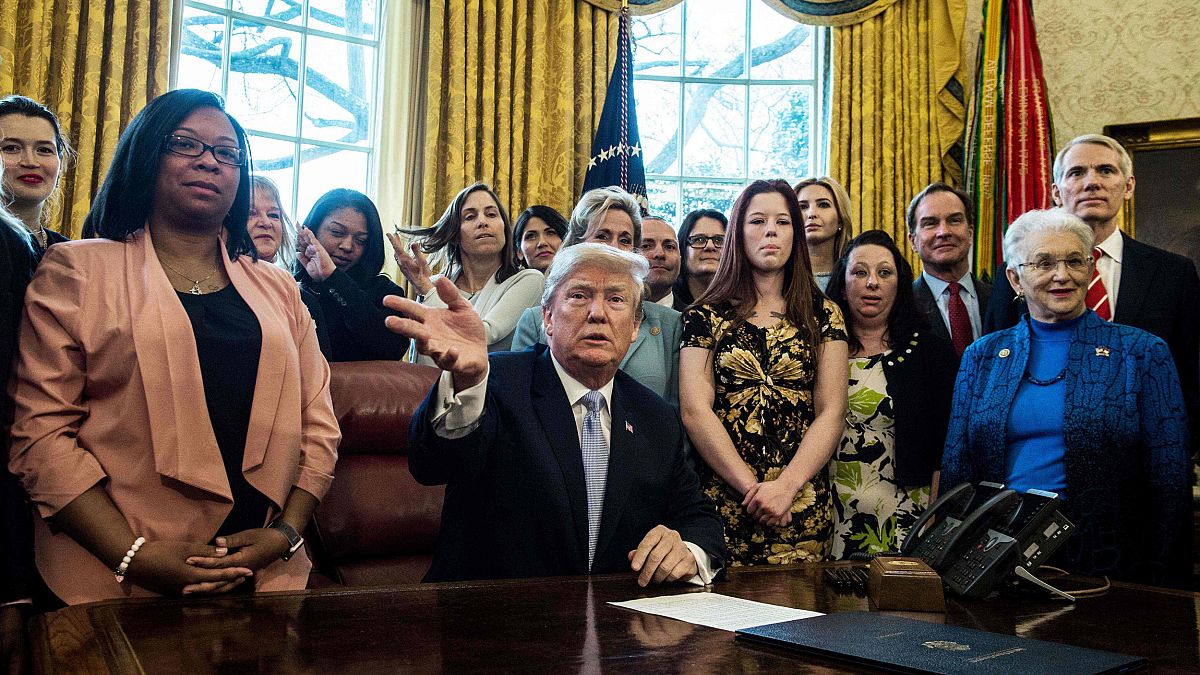Program funds went into limbo 5 days after the funding announcement was updated to "allow recipients [of the funds] to serve non-citizens,"
WASHINGTON — The Trump administration abruptly delayed a $13.5 million grant to house human trafficking victims just five days after saying that "non-citizens" could be served by the program.
The program's funds, which were approved two years ago by multiple federal agencies, are now in limbo with no indication when money will be distributed and no public explanation for the change.
The money was intended to support housing and supportive services for victims of sex and labor trafficking, including immediate emergency shelter and short-term housing of up to 24 months, according to thenotice of funding availability. The money could also be used for providing trafficking victims with furniture, child care services, trauma therapy, cell phones and household items.
The grants were to be dispersed by the Department of Housing and Urban Development, in collaboration with the Department of Justice and Health and Human Services. HUD hosted a webinar on August 22 through the U.S. Interagency Council on Homelessness for organizations interested in applying for the money, which the council described on August 13 as an "unprecedented partnership" between the DOJ and HUD.
On September 4, the funding announcement was updated to "allow recipients [of the funds] to serve non-citizens," including lawful permanent residents and foreign national victims, the funding notice said.
Five days later, the grant solicitation was cancelled, according to the federal government's grants.gov website, which currently states: "This Funding Opportunity has been CANCELLED and is NO longer accepting applications."
A spokesperson for the Justice Department told NBC News the program has been "postponed," not cancelled and that a separate HUD website describing the grant as "cancelled" is a mistake. DOJ has not explained why, but the agency asked for the funds back from HUD and the spokesperson says DOJ will now run the program itself.
HUD did not immediately respond to a request for comment.
Sen. Sherrod Brown, D-Ohio, sent a letter to HUD and DOJ on Friday criticizing the administration for abruptly stopping the grant and asked the agencies to explain what had happened. "Survivors of trafficking must have access to safe and affordable housing," wrote Brown, the ranking Democrat on the Senate Committee on Banking, Housing, and Urban Affairs. "A decision to postpone these housing and services grants into oblivion will be a decision to waste anti-trafficking resources already on the table."
Sen. Mike Crapo, R-Idaho, chair of the committee, did not immediately respond to a request for comment.
"It is especially troubling to me that the Trump administration and HUD Secretary Carson have apparently reneged on providing funds for housing assistance to trafficking victims for political purposes," said Rep. Joyce Beatty, D-Ohio, who has done bipartisan work on human trafficking issues. "That is why it is vitally important for Congress to find out the true reasons for the 'postponed' grant and when it will be made available."
Advocates for victims of human trafficking were confused and taken aback by the sudden move after spending two years of waiting for the federal government to move forward with the initiative, and months of developing their own proposals for grant funding.
"Tons of work has already gone into this program across the country," said Jean Bruggeman, executive director of Freedom Network USA, a coalition of trafficking advocacy groups. She said the time spent applying for the money "has kept people away from providing direct services, because it was for an important payoff
Finding safe, affordable housing is one of the "most persistent challenges" for survivors of trafficking, who often have limited credit and employment history, Bruggeman said. Suddenly abandoning that effort would be "an incredibly offensive waste of resources for programs attempting to meet the daily needs of survivors," she added.
Providing services for human trafficking victims has been a popular bipartisan cause and President Donald Trump signed four anti-human trafficking bills into law in January, which were touted by the president's daughter Ivanka Trump.
